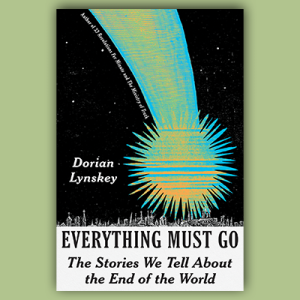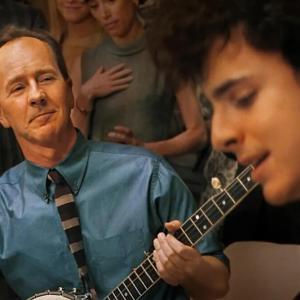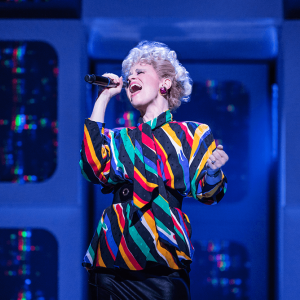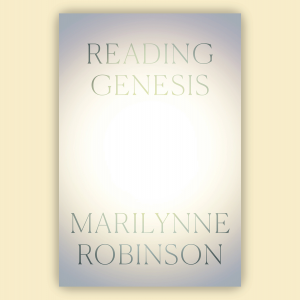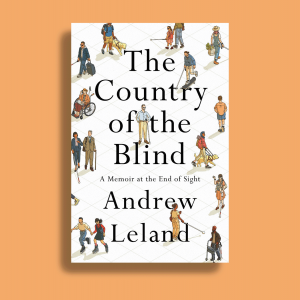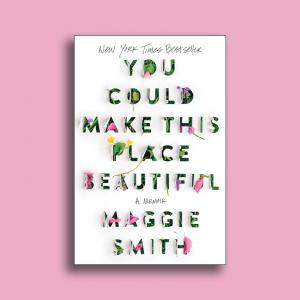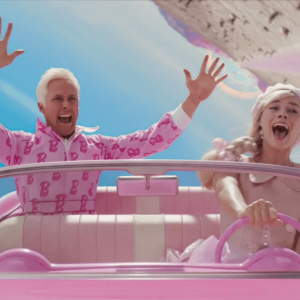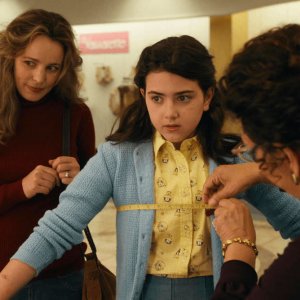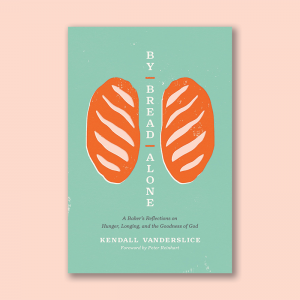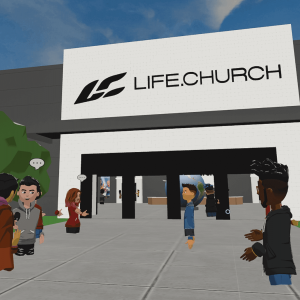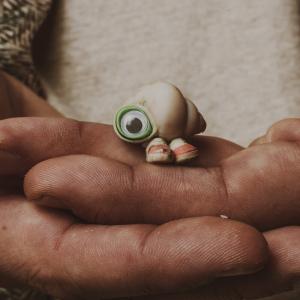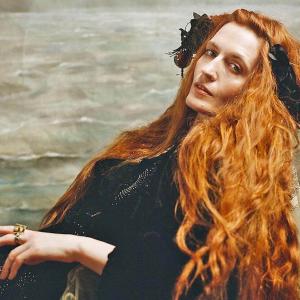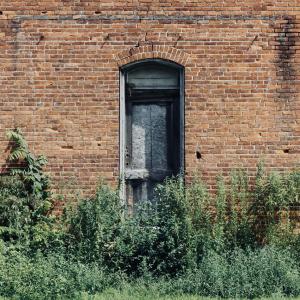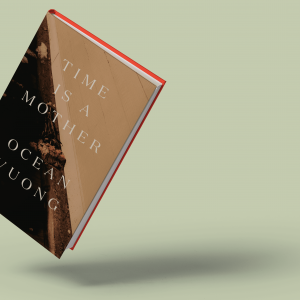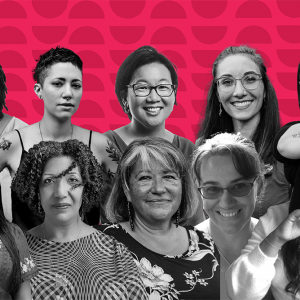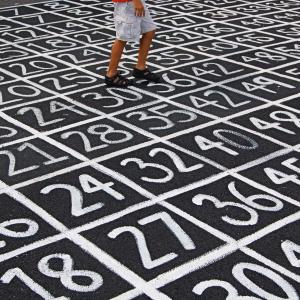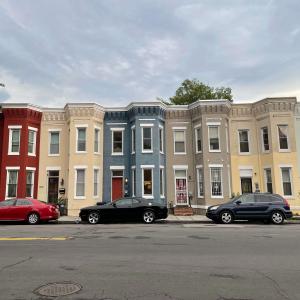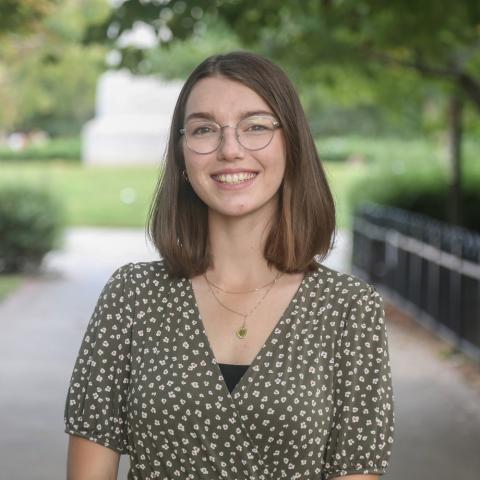
Olivia Bardo is a poet and baker of bread. She was born and raised along the fringes of the Appalachian Mountains in northeastern Pennsylvania, instilling in her a love for painting and storytelling. Olivia studied English, politics, and gender studies at Messiah University and had the opportunity to study abroad at Oxford University. Her senior thesis investigated the intersections of self-advocacy and poetic voice within early 20th century women’s magazines.
Olivia served as editor-in-chief of her campus literary journal and as a student fellow in the Center for Public Humanities, a humanities-based social justice initiative. During her time with the center, Olivia advocated for voting rights and researched the rich history of Harrisburg, Penn., and its residents. She also volunteered at Poetry-in-Place workshops, assisting middle school students as they composed poems. She realized her calling to pursue social justice through reading the works of Edwidge Danticat.
Olivia learned of Sojourners through many thoughtful conversations with professors and community leaders dedicated to the common good. In joining Sojourners, Olivia is thrilled to continue carrying out conversations and action that lead to social change.
In her spare time, you may find Olivia with a cup of tea visiting art museums, wandering poetry stacks, and foraging fields of blueberries and wildflowers.
Posts By This Author
Why Are We Drawn to Apocalypse Tales?
In ‘Everything Must Go,’ Dorian Lynskey chronicles humanity’s unending preoccupation with the end of the world.
I GREW UP heavily steeped in ’90s Christian rapture culture. I’d polished off all 40 books of the Left Behind kids series before I finished 6th grade, and holes formed in the knees of my favorite butterfly jeans because I wore them as often as I could to make sure I was raptured in them.
While the rapture is no longer central to my faith, I never realized how much apocalyptic thinking is soaked into our culture — and how much of it I absorb — until I picked up Dorian Lynskey’s latest book.
In Everything Must Go, Lynskey chronicles humanity’s unending preoccupation with the end, detailing how apocalyptic thinking has pervaded the media and pop culture throughout history, “turn[ing] fear into entertainment.” His book focuses on examples of apocalyptic thinking that “reveal something important ... about the times in which they were created.” Most obviously, apocalyptic imaginings reveal what we’re afraid of. Each era has had a different disaster to fear, be it nuclear, ecological, or cosmological. For millennia, the world has been ending again and again. “There is simply no end of ends,” Lynskey writes.
And some of the most influential end-time tales come from the Bible. From Genesis to Revelation, scripture is full of disaster narratives. “It is the Bible that supplies the primordial tales that surface over and over again in the art, literature, cinema, and television of the West,” Lynskey writes. “The Christian apocalypse is still with us, then, in a range of disguises.”
In ‘A Complete Unknown,’ It’s Pete Seeger Who Brings the Wisdom
James Mangold’s A Complete Unknown is a striking film. Centered on a young Bob Dylan (Timothée Chalamet), the biopic chronicles the folk music community that bounced in and around 1960s New York City, offering stellar musical and acting performances in the process. But its wisest scene takes place off stage in an intimate conversation between Dylan and Pete Seeger (Edward Norton).
In ‘Wicked’ and the Bible, Prophets Are Scorned for Truth-Telling
Prophets, by nature of their calling, are not well-liked. They must tell a community or nation what they’re doing wrong. In biblical times, modern times, and Ozian times, people don’t like to be told that they need to change their ways. So when Elphaba is called to disrupt the oppression that many have become complacent with, she is rejected for it.
‘Tammy Faye’ the Musical Highlights the Theatrics of Televangelism
A musical about Tammy Faye Messner, more widely known by her former name, Tammy Faye Bakker, seems odd at first. But the Broadway stage feels like the right place for the rise and fall of televangelism to play out. Televangelism, after all, is meant to be a spectacle. And its shadow of corruption, sex, and money only add to the theatrics of it all.
‘Reading Genesis’ With Marilynne Robinson
The acclaimed author invites us to return to often oversimplified stories from the Bible's first book.
MANY YOUNG CHRISTIANS grow up with special “adventure Bibles” composed of a curated selection of Genesis stories. Featuring colorfully illustrated characters and simplified, “age-appropriate” plot lines, these stories are admittedly easier for children to absorb. Take, for instance, the adaptation of Genesis 3 found in Zondervan’s The Beginner’s Bible: We meet Adam and Eve walking the arcadian Earth. Their bodies are hidden behind carefully placed branches and auburn waist-length hair. Acting alone, Eve takes a bite of bright red fruit and loses paradise. It’s a simple story. It’s also inaccurate.
Marilynne Robinson’s Reading Genesis presents a much more complicated portrait of the first book of the Bible. She invites us to return to these ancient tales and allow the figures to re-introduce themselves. In Robinson’s telling of Genesis 3, Eve is much more dynamic. She is “the mother of all living” who, alongside Adam, “disobeyed, doubted, tried to deceive,” and as a result, brought about “human agency, responsibility, even freedom.”
A New Memoir Presents Blindness as Both a Loss and a Great Gift
In ‘The Country of the Blind,’ Andrew Leland reflects on the false binaries of blindness and sightedness.
ANDREW LELAND HAS been going blind since high school. In college, he was formally diagnosed with retinitis pigmentosa, a degenerative eye condition. Leland, who is a writer, editor, and educator, named his memoir The Country of the Blind, after the 1904 H.G. Wells short story in which an explorer falls down a mountain and finds himself in a village where everyone is blind. But unlike the explorer, Leland does not experience a rapid descent into blindness. Instead, for decades he has traversed the blurry middle ground of “becoming blind.” He writes, “It’s so much easier to conceive of it as a binary — you’re either blind or you’re not; you see or you don’t.” The Country of the Blind breaks down the binaries of our understanding of blindness and sightedness, and takes us on a personal and historical journey through the culture of blindness.
Blindness has always been a part of my story. My father, who has both retinitis pigmentosa and Coats disease, started to lose his eyesight in his teens and lost almost all of it by the time he was 27. But his world was not lost when blindness set in. Rather, like Leland and others with blindness, his world was still there; he just needed to learn new ways to traverse it. Growing up, I observed my father navigate the world with intention. He chopped firewood to keep us warm in the winter. He identified different denominations of currency by distinctively folding the bills. He carried a special tool to guide his pen when he signed documents.
Poet Maggie Smith Finds Beauty After Divorce
The author of “Good Bones” teaches us to change direction, create a new path, and let the light in.
OUT OF DARKNESS, the Lord lit a flame — then shaped humans by the glow and placed them in a garden, charging them to tend it and make it beautiful. In her new memoir, poet Maggie Smith promises that this is possible: You Could Make This Place Beautiful.
Smith explores her rise to fame after the publication of “Good Bones,” deemed the “official poem of 2016” by Public Radio International and the source of her memoir title. In the poem she writes, “Life is short and the world / is at least half terrible, and for every kind / stranger, there is one who would break you, / though I keep this from my children. I am trying / to sell them the world. Any decent realtor, / walking you through a real shithole, chirps on / about good bones: This place could be beautiful, / right? You could make this place beautiful.”
According to Smith, her rise in popularity contributed to the end of her marriage. In her memoir, she shares how she forged her way back to herself. She realized her marriage was structured around patriarchal gender roles: She’d spent years of her adult life with a man who saw her writing as an activity for her “spare time,” outside of housework and child care. At the end of her marriage, Smith asked, “What do I have now? What do I have to hold on to?” She goes on, “When I looked down, I saw the pen in my hand.”
‘Barbie’ Is Greta Gerwig’s Genesis Story
In the beginning, Ruth Handler created Barbieland. And Ruth said, “Let there be pink,” and there was pink.
Puberty Is Spiritual in ‘Are You There God? It’s Me, Margaret.’
Children are already exploring sexuality and religious skepticism in complex and important ways — so our films and books should, too.
Loving the Yeast of These
Kendall Vanderslice reminds us in ‘By Bread Alone’ that the simple act of sharing meals and breaking bread is a profound means to understand God's ways.
WHEN I FINISHED reading Kendall Vanderslice’s By Bread Alone, I went into my kitchen and measured out flour, water, yeast, and salt. I kneaded the dough, let it rise and fall then rise again. Soon, three golden loaves were ready for me to bring to my pastor and his family. Bread connects us to each other and to Jesus. As Vanderslice details in her book, bread is central to the Christian story.
Vanderslice, who holds a master’s in gastronomy from Boston University and a master’s in theological studies from Duke Divinity School, is a professional baker and practical theologian. She seeks to create an eternal communion, much like the “taste of bread lingering on our tongues.”
Meeting God in the Metaverse
“Throwing up a heart emoji” in the middle of a sermon doesn’t convey the depth of my relationship with Christ.
IN THE DARKNESS, I heard a voice calling my name: “Hi, Olivia.” I couldn’t control my arms and legs enough to acknowledge the voice. Again: “Hi, Olivia.” At this point I was feeling sheepish. Finally, the voice said to me, “Olivia, I think you’re muted. If you want, you can turn your mic on.”
The voice was that of Steven Roberts, who serves as Life.Church’s online host team pastor. I was attending my first church service in the metaverse.
The darkness faded, and I saw the words “Life.Church” written on the face of a computer-simulated grey, black, and white building. I (or rather my avatar) walked through the building doors into a lobby with welcome signs and informational graphics about the mission and history of Life.Church. There was even a game room with a playable pool table and dartboard. I directed my avatar to the sanctuary.
Life.Church is a multicampus church in the Evangelical Covenant Church denomination. Led by Craig Groeschel and based in Edmond, Okla., it has 44 physical locations in the U.S. and has now ventured into the metaverse.
I Needed a Tiny Shell to Play Me ‘Amazing Grace’ With Curly Pasta
I went to the theater alone, feeling small and bereft. At the urging of a friend, I went to see Marcel the Shell With Shoes On. I felt my smallness increase as the theater darkened. Then suddenly, there was Marcel, a one-inch-tall shell, blinking back at me. Marcel is soft-spoken, inquisitive, and wears pink shoes.
Florence + the Machine Calls Us to Rage — And Dance
It feels as if there’s an incantation around Dance Fever. Florence Welch leads us through the complexities of finding beauty and purpose amid suffering and evil. The 14 tracks take us on a mythic journey that lingers on the pain.
The 94-Year-Old Who Taught Me To Swim
Lessons on life, staying afloat, and 10 articles our editors are reading this week.
When Injustice Spreads Like Mint
March is the most underrated month. In it, winter makes room for spring in a million miraculous ways. These changes are imperceptible unless you slow down and pay attention.
30 Bible Verses About Rest for When You Feel Overwhelmed
In Genesis 2, after spending six days forming the earth, God rests “from all the work,” setting a sacred precedent. In Exodus 20:8-10, God instructs the Israelites to embrace patterns of rest. In Matthew 8:23-26, Jesus rests in a boat during a torrential downpour, despite tides rising and crashing against the boat’s hull, threatening to capsize the passengers. We can take comfort in this: If the son of God needed to take a break every now and then, so do we.
Vignettes of Joy Amid Brokenness
Ocean Vuong's ‘Time Is a Mother' reaches for the depths of what was lost.
IN OCEAN VUONG'S latest collection Time Is a Mother, the T.S. Eliot Prize-winning poet reaches for depths of what was lost.
We encounter Vuong submerged in profound and compounding grief after the death of his mother. The book’s epigraph from César Vallejo reads, “Forgive me, Lord: I’ve died so little,” touching on the guilt that can accompany those left behind after a death. These poems hold the tension between looking back and moving forward, with the awareness of someone acquainted with feelings “that made death so large it was indistinguishable / from air,” as Vuong writes in “Not Even.” Those grieving search for comfort, while also examining life before loss—sometimes recognizing that grief was always present.
Time Is a Mother is full of questions that reckon with these past experiences. One of the first poems asks, “How else do we return to ourselves but to fold / The page so it points to the good part.” Other verses ask, “What if it wasn’t the crash that made us, but the debris?” and “How come the past tense is always longer?”
10 Christian Women Shaping the Church in 2022
For the past six years, Sojourners has celebrated Women’s History Month by sharing a list of Christian women who are bringing us hope and inspiring us to action. This year’s group includes pastors and poets, abolitionists and mothers, liturgists and storytellers; women who question authority, disrupt unjust systems, set boundaries, reimagine what’s possible, and pray.
On 2/22/22, A Look at The Spirituality of Numbers
Today is a day for magical thinking. The date — 2/22/22 — is a palindrome: Whether you read it forward or backward, the date is identical. Because the day also falls on a Tuesday, particularly enthusiastic followers of palindrome dates have been calling today “Twosday.”
If Night Has To Become Day: What Our Fellows Are Reading
My favorite place in the Sojourners’ Fellowship house is the chair by the window. Each morning, I tiptoe through the dark house, flip on a lamp, and turn on the kettle. I center myself in the lingering darkness of the previous night.
